me @ 5
When I was a little girl I didn't have many friends. It took me years to feel comfortable enough to raise my hand in class, let alone strike up a conversation with one of my classmates. And yet, I was happy. I was happy in my own world, surrounded by things that were make-believe and plastic, stuffed. And why wouldn't I be? I had a family who loved me, who nurtured my strengths - I lived in the land of luxury, in a home with ocean-views and freshly-mowed grass in the yard.
I wrote my first poem in first grade. It is still my earliest memory, sprawled on my belly across the driveway, my paper flattened against a hard cover TIME/LIFE book.
I submitted the poem to a school anthology and won the district award. Suddenly I was somebody. And for years and years, that is who I stayed, slowly becoming more confident, more able in social situations until 5th grade found me with friends of my own. But the more friends one makes, the more enemies she has. If you can't join them, beat them... This is especially true for women and girls. Especially girls in high school. Especially when you're lucky, as I was. I had it all. And I knew it. And it made me feel like shit.
The other girls were just jealous of course. Except I wasn't allowed to think they were jealous because that meant I thought I was better than them so I spent much of my high school years lying about how much everything sucked. So that people didn't hate me, I wrote self-deprecating things and talked about how much I disliked myself. I learned quickly that if people feel sorry for you, they cannot hate you. Twas an armor of angst I wore that made my life easier. That kept me from getting pushed around by the older girls. And even though rumors spread on a daily basis, I embraced them as someone to be pitied. It was easier that way. It was easier to lie and tell people how shitty life was than to risk announcing good news. So I never did.
My resentment mounted over the years as I worked on furthering my career as a writer. As an "artist" ... I quickly learned that the artist is not the girl who gets the car on her sixteenth birthday. The famed novelist doesn't have happily married parents. Interesting people didn't live such generous lives. Didn't have perfect families who sang songs around the piano and ate dinner as a family every. single. night. Interesting people had it tough - had to overcome. Real artists struggled. And suffered. And could barely handle their lives. I wanted to be a real artist, too, no fair, so I prayed for dysfunction. Fell in love with the darkness if only to balance the light I felt I had undeserved.
I thought I had to be unhappy in order to be a creative. Because every book that moved me was written by a tortured and often suicidal genius who either offed themselves or fantasized about it. These women were my heroes. Their pain was my pain and yet? Not my pain at all.
I was the luckiest girl I knew. And I hated myself for it.
Slowly, I surrounded myself with people who hurt me. Who would repeatedly hurt me, fuck me up nice and good so that I could be miserable too. So that I could seek therapy and cry in the arms of strangers, be respected as a writer and artist - someone who wrote from the cell. I pierced my face and dyed my blonde hair black so that people could see that I was real and in pain, legitimate.
me @ 22 with the girl who never got away, still one of my dearest friends.
I spent five years pulling myself down, throwing myself down as bait for misery. So that I could call myself a writer. So that I could garner the respect of all the critics who called me out for being amateurish - optimistic, happy. I became insecure, lost all respect for myself - became all the miserable things I thought I had to be to succeed as a writer and as a friend.
Because happiness isn't cool. Happiness isn't beautiful or profound or poetic. Happy people do not win the Penn-Faulkner awards, let alone get books published. This is what I thought for many, many years.
So I tried to become a drinker. I tried to become someone who got high on drugs so I could write books about "how fucked up shit is, man! Cocaine! Whoa!" I tried to become everyone's whore, slept with so many people I lost track, stopped counting, tried to become suicidal. But even dark-haired and dark-eyed, naked in some stranger's bed, surrounded by the white dust of Bukowsi's trite cliches, I was an impostor. I wasn't like them. And so? These boys I chased and girls I studied stopped including me in their nightly binges and self-made hells, stopped sleeping with me and instead turned to me for help. For money and shelter and love.
So that's what I became --the safe place and 4am phone call. The best friend slash bank account. Once again, I was on the outside. Excluded by circumstance. The lucky one who had it all.
It wasn't until Archer was born that everything changed. Everything changed, everything changed, everything changed I will say it a thousand more times until I'm blue and pass out and then I will wake up and say it again because it's the truth. Archer's birth was the first time I let myself be happy. Truly, honestly, without guilt happy. And even though, in the first few years after his birth, I suffered and struggled and spent many a night, day, week crying over a new and confusing life, I was free.
I was free because I knew that in order to be the best parent for my son, I had to be the best version of myself, so I spent years detoxing, surrounding myself with beauty and light, happiness and happy people until one day I found I had pulled myself out of the world I never belonged to in the first place.
I realized that happiness was okay. That I could still be an artist while remaining optimistic. I didn't have to live a miserable hateful existence to create beautiful things. I didn't have to write about how shitty things were to be appreciated as a writer and then as a person. If people had a problem with me, most of the time, it was their problem and not mine.
I was me, for the first time: The lucky girl who had it all.
People always say, "You know who your true friends are when things don't work out." Not so. People rush to your aid when things don't work out. Strangers become friends when shit goes south. People fawn all over the wounded and lost. It is when life is good, when health is high, when one is happy and success is inevitable that friends disappear. That people stop caring. Stop calling. No need.
I'm not afraid to admit and write about my fuck-ups. I'm not afraid to tell the truth about my pain. My struggles as a mother and wife and human - my past and present fears, decisions, doubts... I'm not afraid to show my body, no matter how imperfect. And to be honest, that stuff's easy. It's easy to write about pain, the struggle, imperfections galore. It's easy to post pictures of oneself without makeup. To admit defeat.
It's the beautiful days and moments and snapshots of self that are difficult to reveal because good times and pretty things are thought to lack narrative and substance and soul.
Because a beautiful picture is far more offensive than an ugly one.
Lately I've been called out both publicly and via email for my lack of angst on Girl's Gone Child. For being annoyingly happy and up and ew.
In the past I would have agreed. Me and my two (fictional) unsold manuscripts about miserable people living miserable lives, uninspired, relatable, profound.
Not anymore.
I feel it would be far more insensitive, even insulting to the "daily struggle" if I didn't celebrate the daily triumphs. And I do because I am inspired by so much more than bad days and dark thoughts and question marks.
I'd like to think we all are.
Contrary to what my name suggests and no matter how many stones I tried to shove in the bottomless pockets of my bathrobe, I was never going to write like Virginia Woolf. I was never going to be the next Anne Sexton or Sylvia Plath or any other tortured genius.
I accept my fate graciously, gratefully, with an infinite source of relief. I'm no genius. Nor am I tortured. Never have been. Even when I tried.
I'm not shy anymore. I raise my hands now and sometimes my voice. I'm unapologetic where I used to cower to my critics. These days I have dear friends both real and imaginary, a family of my own. In so many ways I am so different than I was all those years ago, when I first picked up my pen. But in even more ways I am the same little girl, still writing about those damn winged-horses and joyful fucking days.
Except this time? I don't intend to stop.
GGC


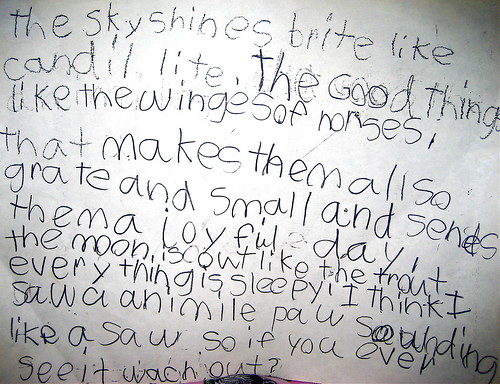
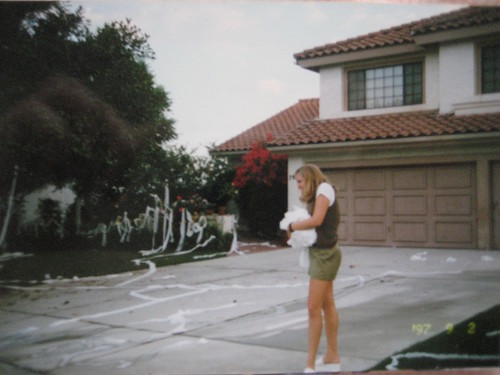
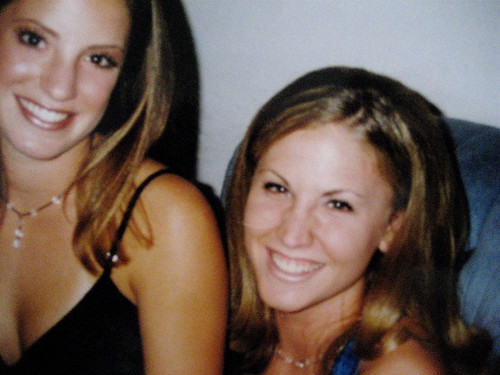
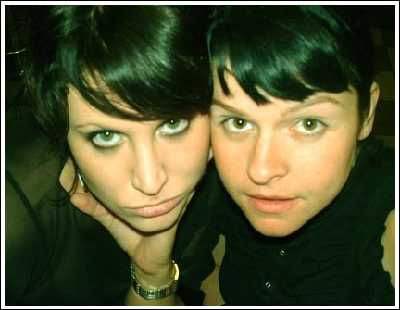
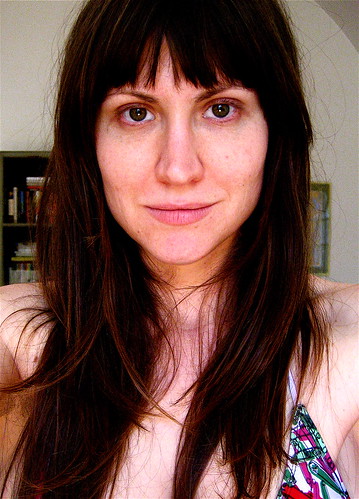
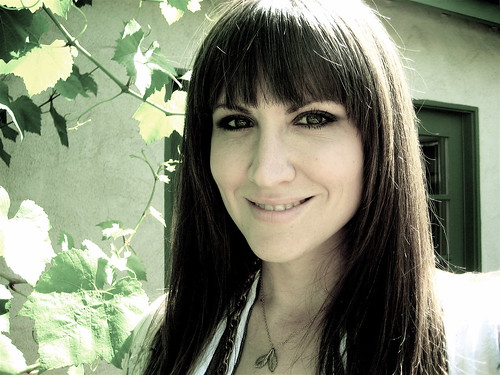

202 comments:
«Oldest ‹Older 201 – 202 of 202 Newer› Newest»-


-
-
-


-
-
«Oldest ‹Older 201 – 202 of 202 Newer› Newest»It doesn't matter how long we may have been stuck in a sense of our limitations. If we go into a darkened room and turn on the light, it doesn't matter if the room has been dark for a day, a week, or ten thousand years -- we turn on the light and it is illuminated. Once we control our capacity for love and happiness, the light has been turned on.
Sharon Saltzburg
I like reading your blog *because* you write about joy and happiness in motherhood and life. Without being smarmy or uppity. It is absolutely refreshing and inspiring.
Post a Comment